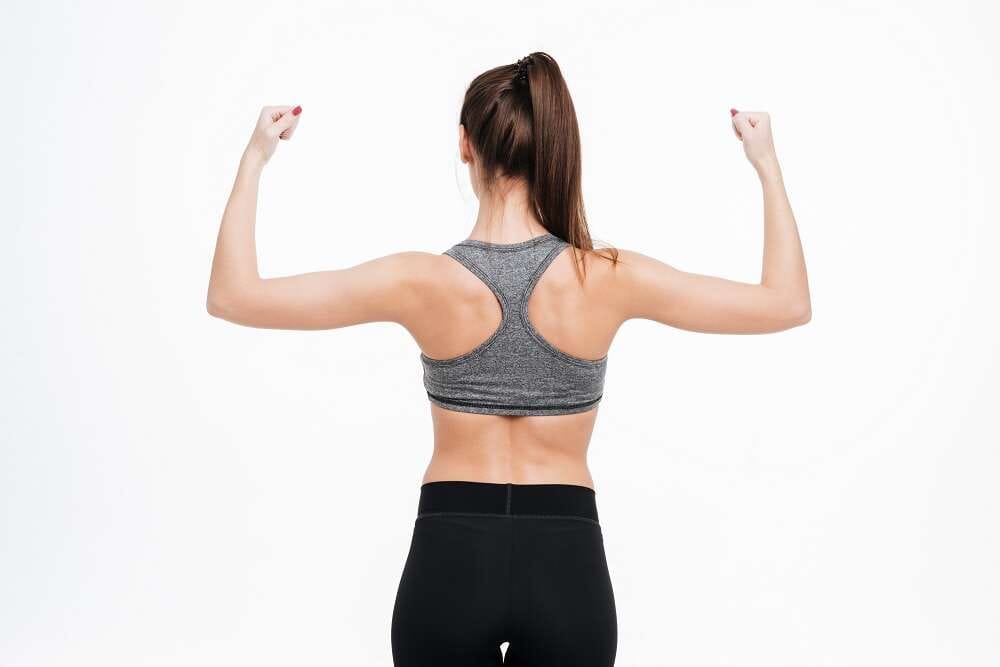
British Chiropractic Association (BCA) launches new research revealing one in three 18-24-year olds have experienced back pain in lockdown. A higher percentage than those aged over 55
Nearly three quarters of 18-24-year olds are spending more time sat down since lockdown started in March, with Brits overall sitting 11 hours a day
Exercise and getting outside each day are the hardest routines to stick to, with 42% of Brits not finding time for these. But they’re the routines people want to most improve in 2021
The British Chiropractic Association has launched new research revealing that 18-24-year olds have experienced the biggest impact to their physical wellbeing, as a result of lockdown lifestyle changes.
The survey, conducted with OnePoll and the BCA, investigated the lifestyle habits and routines of 10,000 people across the UK, to understand the biggest changes to the population’s physical wellbeing as a result of lockdown and the impact continued restrictions may have – the study looked at areas including exercise, sedentary habits, sleep quality and diet. Across all age groups, people have been more sedentary since March, on average spending 11 hours a day sat down. All age groups have found exercise the most challenging routine to stick to, and it’s the routine they want to most improve in 2021.
The data suggests that the biggest changes have arisen within the 18-24 age group, with results revealing:
- 18-24-year olds were the most proactive in setting routines for their wellbeing at the start of lockdown but have been the worst age group at sticking to them. 79% of this group have dropped new routines they set in March
- Nearly 75% of 18-24-year olds are spending more time sat down since lockdown
- 40% of 18-24 years old are struggling with getting quality sleep, and they’re the poorest sleepers of any age group
- One in three 18-24-year olds have experienced new symptoms of back, neck or shoulder pain since March. A higher frequency than those aged 55.
- 80% of the 18-24-year olds experiencing back pain are suffering with symptoms every single week
- Only 12% of 18-24-year olds have sought support from their GP, and 7% have consulted a chiropractor
- 18-24-year olds are more concerned than any other age group about the impact ongoing lockdown restrictions will have on routines to protect their wellbeing
Catherine Quinn, President of the British Chiropractic Association, said: “Lockdown has brought unprecedented changes to all our lives – this includes our general lifestyle and day-to-day routines. With the nation in the second round of lockdown and restrictions very likely to continue into 2021, we wanted to understand the impact this period has had on the nation’s physical wellbeing. The results showed that all ages have been impacted, with routines like exercise being unanimously the hardest to stick to. We were surprised to find that 18-24-year olds have been more impacted than other age group, particularly in areas such as frequency of back pain, exercise and sleep quality. Traditionally, back strain or injury most commonly occurs through wear and tear as we age, or injury. What this data suggests, however, is that there’s been a sharp rise in the prevalence of back pain amongst younger generations, as a result of changes to our physical activity in lockdown.
“If we consider why young people in particular are experiencing back pain, compared to other age groups, students and young professionals are most likely to live in rented or shared accommodation. They’re less likely to have a set study area to work from, so may not have an ideal set up to work from. Compared to over 55s, many of whom will be retired and have more flexibility in how they use their day, young professionals and students are more bound to a work or study schedule, which makes it more challenging to build in weekday activities like regular exercise.
“The good news is that simple changes can make a big difference – our research shows that 18-24 year olds are more motivated than any other group to look after their wellbeing, and exercise is the routine they most wanted to improve in 2021. My main piece of advice is start small and build up – it could be as simple as a 10minute yoga routine in the morning or popping out for a 20minute walk over lunch. The most important thing is creating a routine that works for you.”
Luke Banfield, is a 24 year old hairdresser from Bristol. He experienced back pain following the UK’s first lockdown. Luke explained: “I had suffered with back pain for some time, but like many men my age, never did anything about it. After lockdown, the pain was really beginning to impact my daily life. At its worst, it left me unable to tie my own shoelaces up and I struggled to pick up my newborn baby. I wasn’t able to go to the gym as exercise was painful, and the impact on my mental health was huge.
“I decided to seek help from a chiropractor, and visited Tim Button, chiropractor and BCA member. After regular sessions, I learnt techniques to help improve my back; from changing my daughter’s nappy at the correct height, to making sure I had the right posture at work. I am now able to pick my 8-week old daughter up again and feel like I am on to road to recovery.”
Further insights from the general population reveal:
- Over half (57%) the population is spending more time sitting down than before lockdown in March
- Only a third of people have kept to their wellbeing routines during lockdown
- Men are nearly twice (41%) as likely to stick to new routines than women (23%)
- Exercise and getting outside each day are the hardest routines to stick to, with 42% of Brits not finding time for these in the week
- Weather trumps lockdown restrictions – 56% of people think the winter weather will have a bigger impact on routines such as exercise, over increasing lockdown restrictions
- Over a third of Brits are struggling with motivation for routines, like exercise and a balanced diet
- 43% of Brits have worked from home during lockdown
- A third of people have experienced poor sleep quality during lockdown
- Over a quarter of Brits have experienced new symptoms of back, shoulder and neck pain during lockdown
- To manage feelings of tension and back pain, 25% of people have purchased self-support tools, 15% have consulted their GP and 10% have consulted with a chiropractor. Nearly half of people haven’t sought any support at all yet (46%)
- Looking to 2021, the biggest priority for people’s lifestyle is getting into a better exercise routine (47%), followed closely by spending less time sitting and more time outside (42%). Spending more time with family and friends (35%) is an equal priority as having a better sleep routine (35%) and balanced diet (37%)
Catherine’s top tips for better back health…
- Build a routine that’s realistic and works for your lifestyle. Incorporating movement into your day is so important, but many of us set unmanageable goals for exercise. When we don’t achieve these goals, which are far reaching to start with, this then impacts our motivation, making us less likely to create new positive habits for our wellbeing. It’s great to set longer term intentions, but start small, for example taking a 15-20-minute walk on your lunch break. Over time this will become almost an automatic habit and you can build it up from there – it’s all about manageable bitesize chunks!
- Our bodies love variation, so try to mix up the position you work in – if you work at a desk or table, consider a laptop stand which will allow you work standing up. It’s also totally fine to get creative – I’ve used my kitchen counter and a chest of draws before as a DIY standing desk. Just make sure your screen is eye level. Stacking books is a good way to easily add height. If you’re like me and the workday whizzes by without looking at the clock, try scheduling a ‘standing hour’ in your diary as a reminder
- A great night’s sleep is a game changer – it’s all too easy to scroll through TikTok and Instagram reels from bed, and before you know it an hour’s gone. Try and protect the hour before you go to bed as your personal wind down time. My tips include avoiding blue light tech – most phones have a night-time mode, which changes the screen light and stops notifications coming through. I find reading a great way to nod off – apps like Calm have bedtime stories designed specifically to help you drift off, if you prefer to listen. Again, the main thing is about consistency and sticking to similar timings each night, so you train your brain for your new routine
- With changing lockdown restrictions and generally poorer weather on the way, getting outside to exercise or going to the gym is harder. To look after your back health there are lots of easy exercises you can do at home. One of my favourites is using a towel like a foam roller and lying with your back across it – this will really help open up your chest. Your body will love you for it if you tend to hunch over your keyboard (which I definitely do at times!). We’ve created some easy bitesize videos with simple stretches and exercises you can do at home, which you can find here: https://chiropractic-uk.co.uk/straighten-up-uk/
- It’s important to ensure you get enough daylight, particularly throughout the winter months. Vitamin D is an essential part of maintaining your wellbeing and the NHS supports the use of Vitamin D supplements, especially if you’re spending more time indoors. Getting enough sunlight can help to improve your sleep and general mental health, as well as keeping your bones, teeth and muscles healthy.


